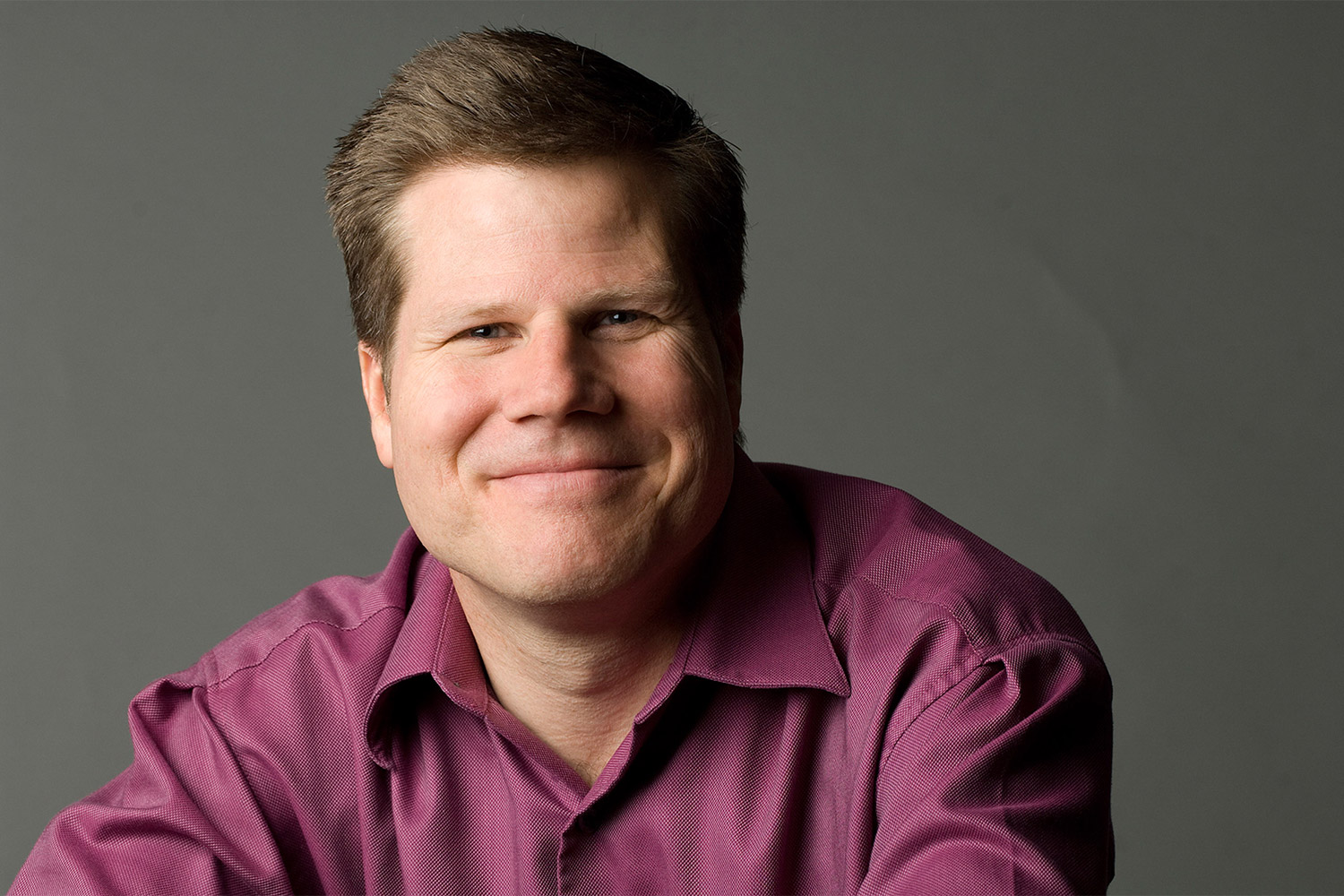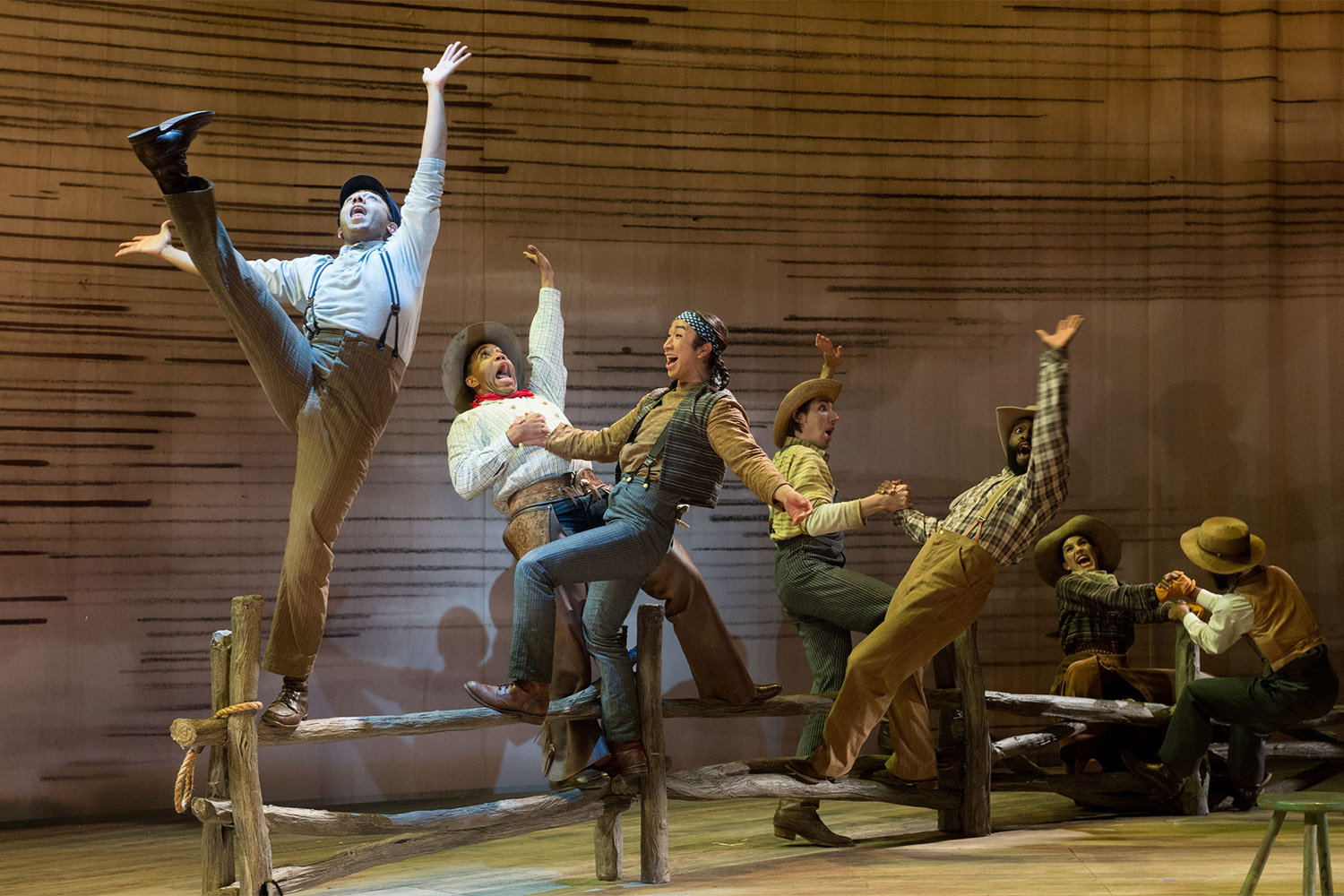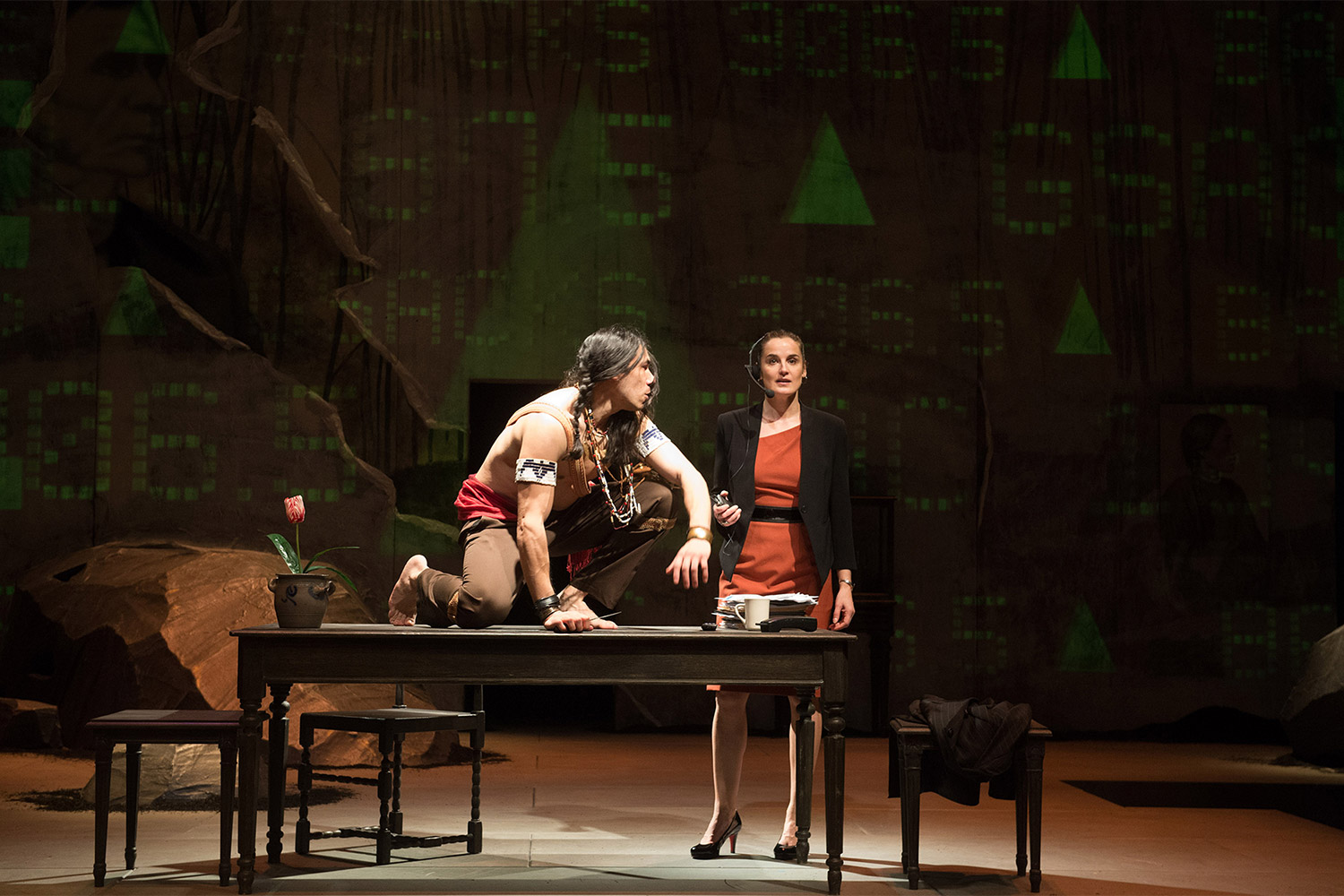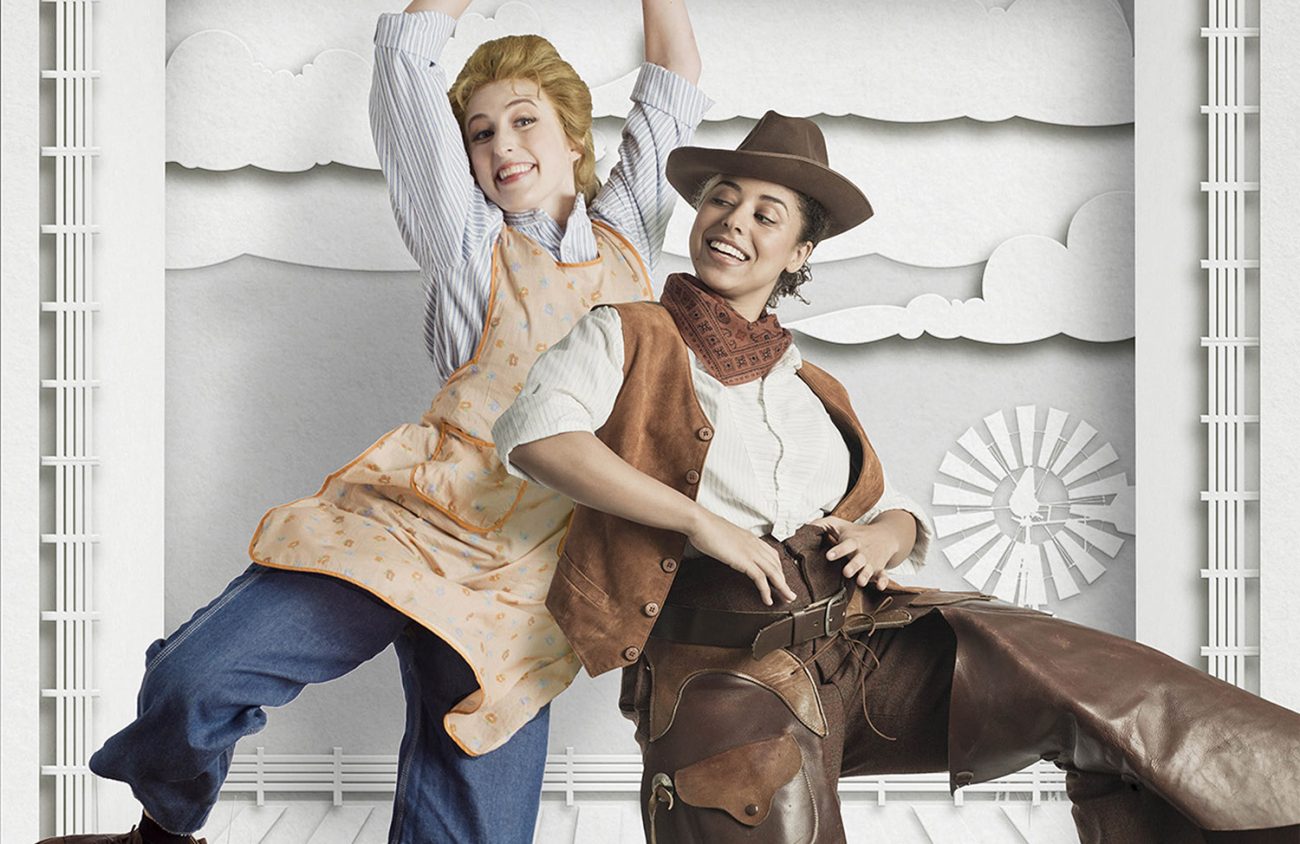When Bill Rauch became artistic director at the Oregon Shakespeare Festival in 2007, one of the first things he did was to validate my deep love for musical theater by staging The Music Man.
That was at a time when musicals were essentially unheard of at the festival. Some mild grumbling was heard when audiences saw the shyster Harold Hill trying to seduce Marian the Librarian right there in the Bowmer Theatre, where non-Shakespeare fare was more likely to be by Anton Chekhov or August Wilson than Stephen Sondheim or Meredith Wilson.
Rauch wasn’t deterred. “The American musical is our country’s largest contribution to world drama,” he told me in an interview soon after. “It’s important for us to look at that canon.”
And look he has. Since Music Man, OSF has staged My Fair Lady, Guys and Dolls, Head Over Heels, The Wiz, Pirates of Penzance, The Yeoman of the Guard and Into the Woods. In 2019 it will put on Hairspray.
So it’s fitting that Oklahoma! is, in a sense, Rauch’s swan song at OSF — the last musical he directs before departing next year to become the artistic director at the Perelman Center, a new theater being built at New York City’s Ground Zero.
For me, musicals used to be a guilty pleasure. When I was a kid growing up in L.A. I was entranced by Richard Rodgers and Oscar Hammerstein’s shows (which I saw in those days only in the movie versions) like Carousel, The King and I and Oklahoma! Even though I loved them I considered them sappy and quaint, with syrupy romantic themes worthy of no more serious attention than, say, an episode of I Love Lucy.
Ah, the arrogance of youth (and the superficiality of Hollywood, which dumbed down the movie versions I saw).
Enlarge

Photo by Jenny Graham, Oregon Shakespeare Festival
Now, with another half century of living behind me, I see that, beneath all that syrup, Rodgers and Hammerstein’s best work deals with the dark foundations of American culture, from racism (South Pacific and King and I) to crime, punishment and forgiveness (Carousel) and the vital importance in American life of uniting divided groups who hate each other, as is the case in Oklahoma!
The show, which opened on Broadway in 1943, is a monument in theater history. Musical theater had its roots in turn-of-the-century vaudeville, and early musical comedies treated songs as simple breaks in the variety show. Not until Showboat in 1927 did the music become part of the fabric of a coherent story.
In Oklahoma! the whole show is seamless, with song lyrics moving the story along. The show even includes dance: Act I ends with a wordless 10-minute “Dream Ballet,” choreographed in the original Broadway production by Agnes de Mille.
That first production would run for 2,212 performances; it won Rodgers and Hammerstein a Pulitzer Prize in 1944. It’s been revived endlessly on stages around the world and, of course, was made into that 1955 movie of the same name, which won two Oscars.
The only problem is this: How do you put on a serious version of Oklahoma! in 2018 and find something interesting and new to say?
No problem for Rauch, who can be as flamboyantly creative as The Music Man’s Harold Hill. Rauch’s 2018 season announcement last year ended up in The New York Times: “Oregon Shakespeare Festival Season Includes a Same-Sex ‘Oklahoma!’” the headline said.
Same-sex romance in 1906 Oklahoma?
Rauch uses a program note to explain in greater detail. “The idea of a production with same-sex couples has been hibernating in my heart for more than a quarter of a century,” he writes. “Despite the extraordinary social progress that the LGBTQ2+ community has made, I didn’t believe that I would see the production I dreamed of in my lifetime.”
Enlarge

Photo by Jenny Graham, Oregon Shakespeare Festival
His vision of the Oklahoma of the play includes “an alternative utopian community that reflects progress and acceptance for our time.”
All this was swirling around my head as I drove down to Ashland to see Oklahoma! late last month in — untypically for a critic — a mid-run performance (the show opened in April at a time I couldn’t go). “Mid-run” means the audience is comprised not of the wealthy patrons, OSF board members, company members and theater fans who jet in from distant cities for opening night shows, but of ordinary tourists and, in this case, busloads of regional high school students who fairly mobbed the Bowmer lobby before the show.
You could hear them chattering nervously away, giggling about the notion of same-sex cowboy couples in such a familiar bit of Americana.
Those of us who hadn’t yet peeked at the program wondered, sometimes out loud: Is Curly McClain (the cowboy who opens the traditional show singing the theme song “Oh, What a Beautiful Mornin’” and who falls in love with farm girl Laurey Williams) going to be a cowboy — or a cowgirl?
At last we were seated, the house lights went down and the stage lights came up, and onto a simple, open, asymmetrical set designed by Sibyl Wickersheimer strolled Rauch’s version of Curly, singing along in chaps and spurs, and very definitely a cowgirl (Tatiana Wechsler).
The festival has been doing race-blind casting now for decades, so it came as no surprise that Wechsler is of African-Jewish descent. What was surprising, and gratifying, is how seamlessly she and Royer Bockus, who played the farm girl Laurey, introduced us to Rauch’s gay utopia.
Nothing was campy here, and not a bit was ironic. Instead this Curly and Laurey live in an early 20th-century frontier world where, of course women can fall in love with other women, and not even a foul-mouthed, violent, white-trash cowboy like Jud Fry (played with perfect menace by Michael Sharon) thinks anything of it, except that he’s got his eye on Laurey, too.
So does the whole audience. A relative newcomer at OSF (she was in the ensemble in 2013’s My Fair Lady and was Rapunzel in 2014’s Into the Woods), Bockus lights up the stage with her tall presence, and when she sings it’s with the lyricism of opera. Just to cap it all off, she can dance, too.
The other romantic couple in the traditional Oklahoma! is cowhand Will Parker, who’s smitten with the farmer’s daughter Ado Annie, a homespun gal who likes her pleasures. In this production, though, Will (Jordan Barbour) has his eye on Ado Andy (Jonathan Luke Stevens), who sings and dances deliciously that “I’m just a boy who cain’t say no.”
Even the high school kids, who seemed to make up half the audience, bought effortlessly into Rauch’s fantasy world, cheering on Ado Andy’s pure lustiness and breaking into applause without a smirk when Curly and Laurey finally sort out their romantic denials (“People Will Say We’re in Love”) with a climactic kiss. To my surprise, I loved having the theater full of smart, engaged teenagers, most of whom probably had done actual homework about the show before they reached their seats.
Live music by a small orchestra conducted by Daniel Gary Busby and actually performing in a pit brings the whole thing to satisfying life.
This Oklahoma! could stand on its own as a great, engaging production even if Rauch hadn’t changed up the casting. That he spun the world so sideways, and did it successfully, makes it a brilliant show. Go see it if you can.
Across the bricks at the festival’s small Thomas Theatre you can find a completely different Oklahoma.
Enlarge

Photo by Jenny Graham, Oregon Shakespeare Festival
Mary Kathryn Nagle’s new Manahatta, which also opened in April, is running there for the rest of the season in a world premiere. The small, tight and intense little play — one of the first to be presented at OSF by a Native American playwright — tells the story of the Lenape people who once lived in the island we now call Manhattan, and which they called Manahatta.
Nagle, who also works as a lawyer, sets her story in both the 21st and 17th centuries. In both, Tanis Parenteau plays a Lenape woman who in one century becomes a fur trader exploited by the Dutch, and in the other, a financial trader at Lehman Brothers before and during the 2008 financial crash.
In 2008, the remaining Lenape people have long since been pushed from their Manahatta homeland to, eventually, Oklahoma after their ancestors, not understanding European notions of ownership, sold the island for a handful of trinkets. Nagle’s poetic play is told in layers with roots in Native storytelling.
It’s short — 90 minutes — and gripping all the way through.
Oklahoma! and Manahatta both run through October 27 at the Oregon Shakespeare Festival in Ashland. Tickets are $50 to $135 for Oklahoma!, $40 to $105 for Manahatta. Many performances are sold out. Info at osfashland.org.
